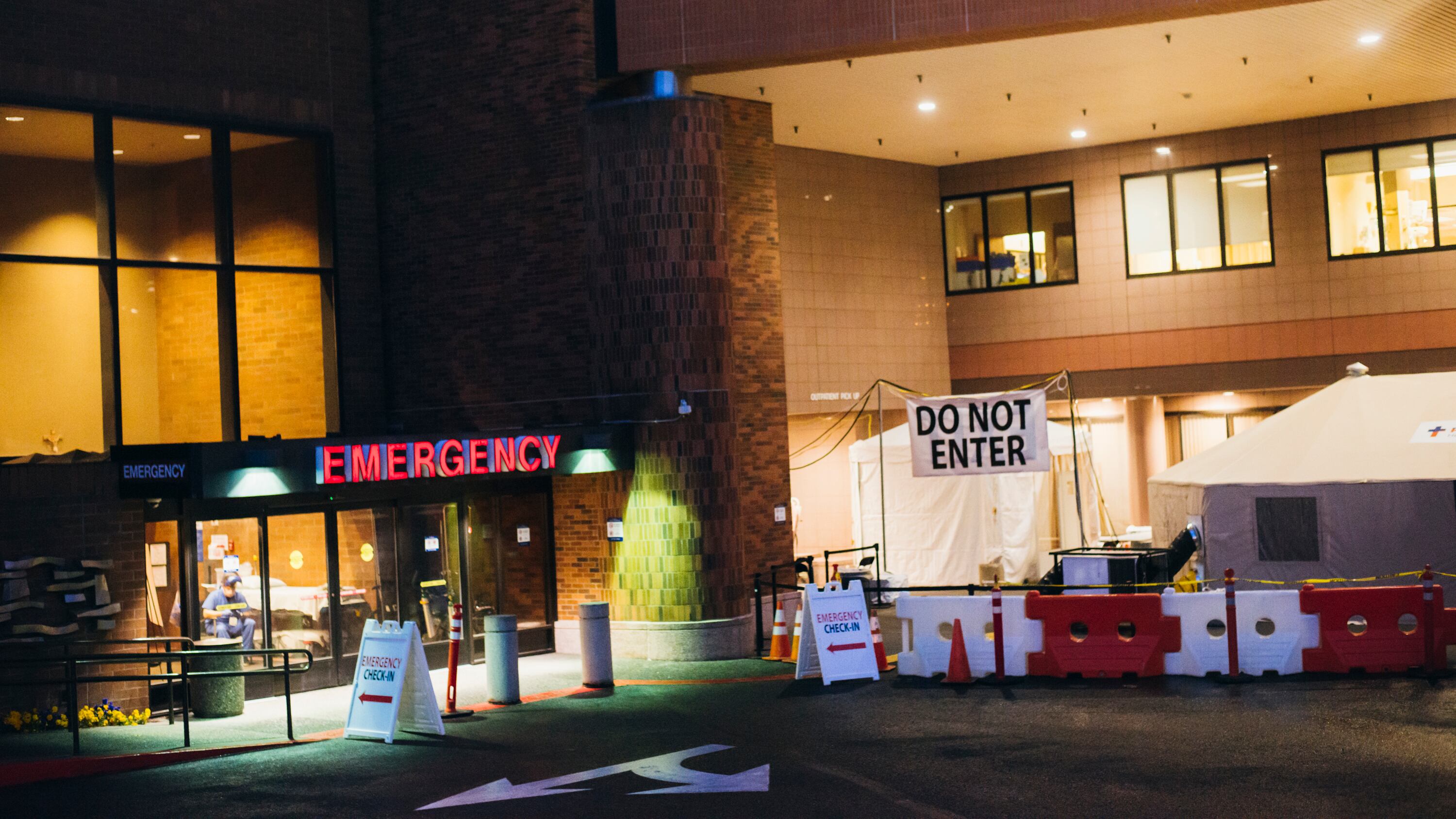During a media call Monday morning with Gov. Kate Brown, frontline workers across the state described the acute strain statewide on personal protective equipment, or PPE.
"In Portland, emergency room nurses are wearing swim goggles," said Sarah Laslett, executive director of the Oregon Nurses Association. "In Central Oregon, nurses are wearing the same N95 masks for three weeks straight."
Dr. Danny Jacobs, president of Oregon Health & Science University, said 12 of the hospital's staff have tested positive for COVID-19 as of Sunday, while more than 800 have tested negative. He said the hospital is looking in "every nook and corner" to find supplies, and that it is currently in a prototype stage with Nike to create more face shields and masks for frontline workers.
Casey Parr, a respiratory therapist at OHSU, says he is wearing the same mask for entire 12-hour shifts.
"I'm 35 years old," Parr said. "For the first time in my life, I've considered whether or not I need to write a will."
Alicia Holihan, an emergency technician at Riverbend Hospital in Springfield, Ore., said the staff are storing N95 masks in paper bags for 72 hours—or the period for which the coronavirus is expected to live—between uses.
"We need PPE. We need other equipment. We need ventilators," Holihan said. "We don't need to be putting two people on one ventilator."
The media call came amid growing COVID-19 numbers at Oregon hospitals. State officials say 140 of Oregon's 606 coronavirus patients are currently hospitalized. Thirty-nine of them are on ventilators. (Sixteen Oregonians have died from the virus, according to state numbers released Monday.)
The purpose of Monday's call was to urge the federal government to issue more equipment to Oregon residents. Brown said during the call that the state, to date, has received just 40 percent of the equipment it has requested from the federal government.
"It's absolutely unacceptable that health care and home care workers lack the necessary resources to protect themselves and their patients," Brown said. "This outrageous lack of action will result in lost lives."
Facing unprecedented shortages, hospitals statewide have accepted hundreds of donated homemade masks in the past week. Two frontline workers on the video call showed the homemade masks they're now wearing to work because they have no other option.
But Laslett said homemade cloth masks can actually be more dangerous than no mask at all when they become saturated with fluids. Frontline workers need medical-grade masks with filters, she said.
"I want to urge us not to think of homemade masks as a solution," Laslett said. "They do not substitute for proper PPE."

